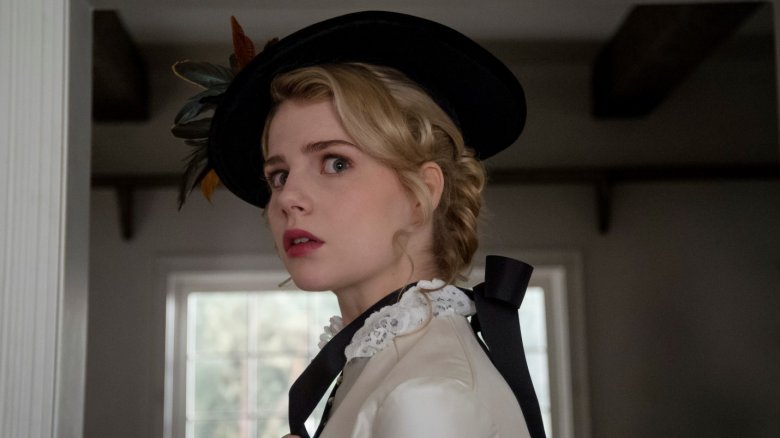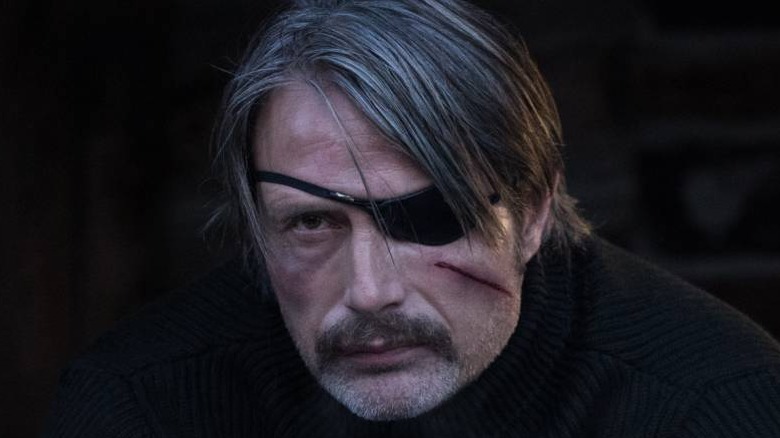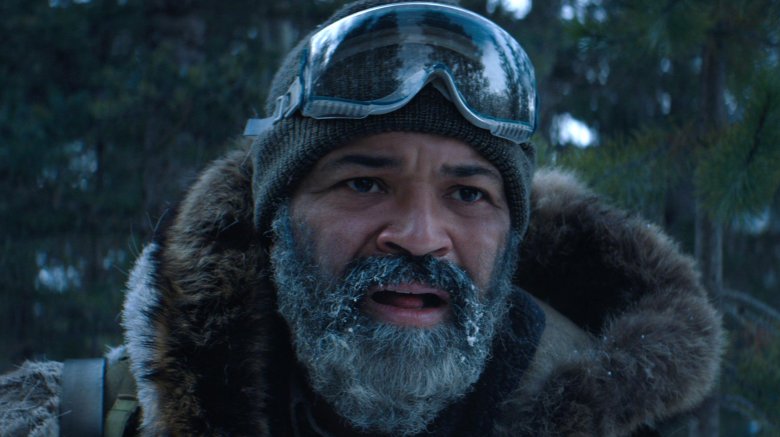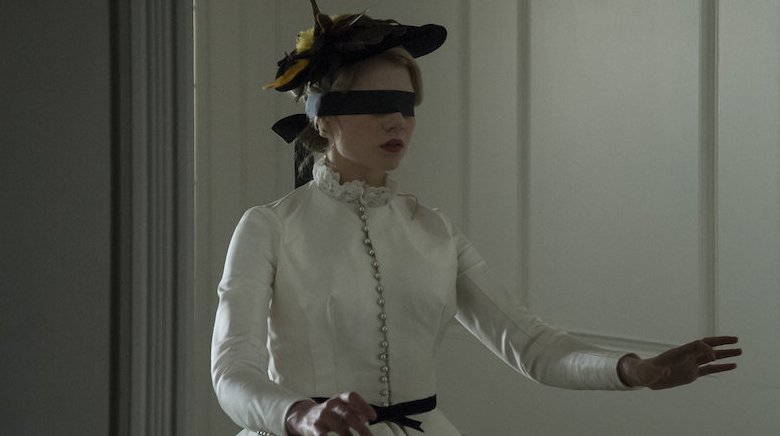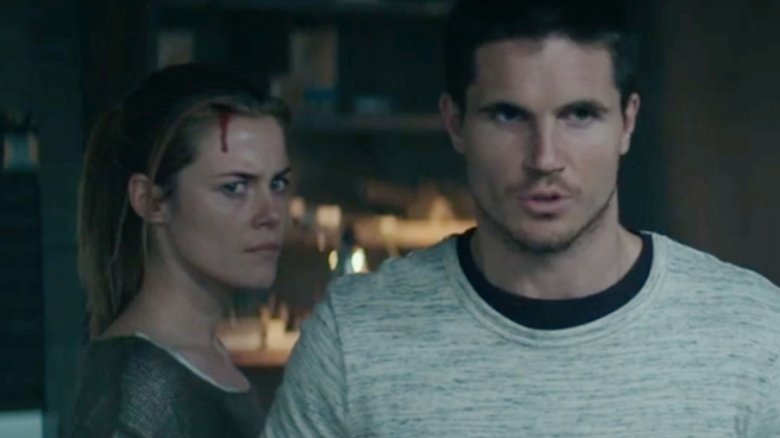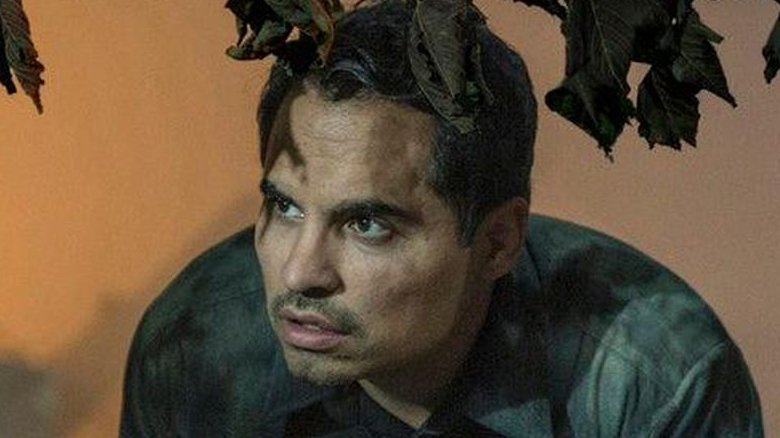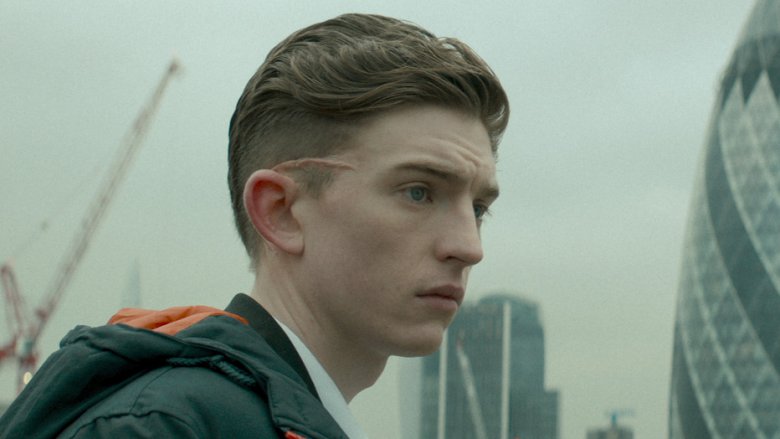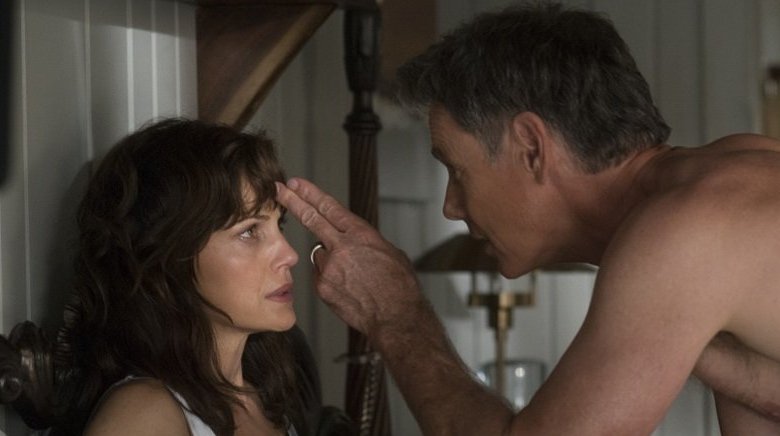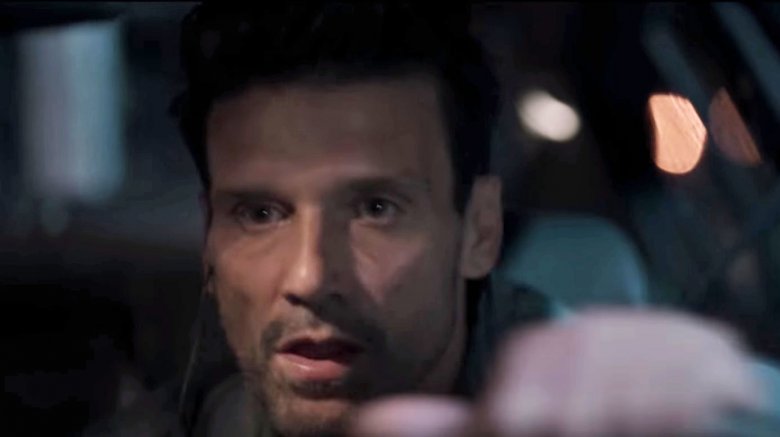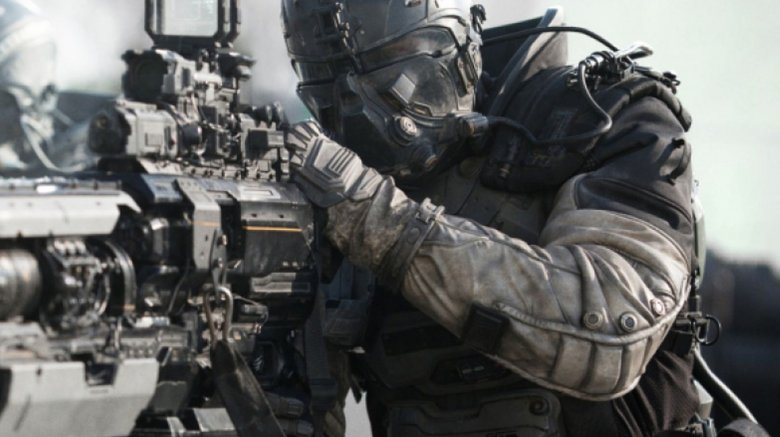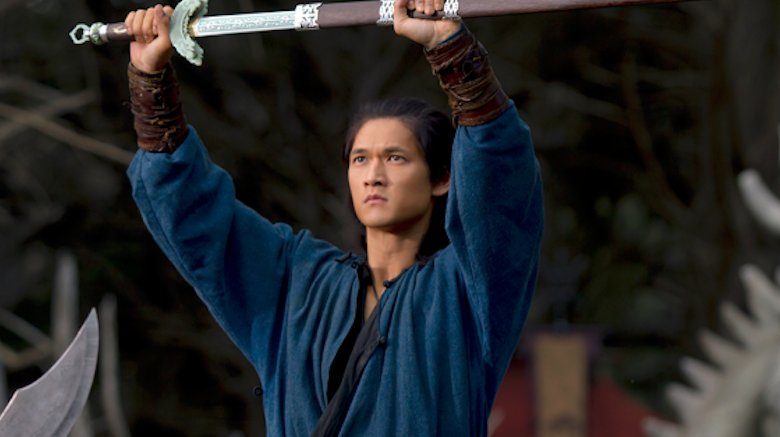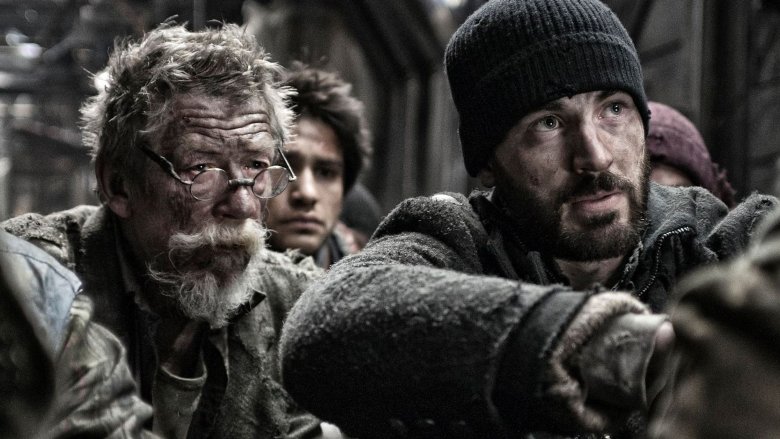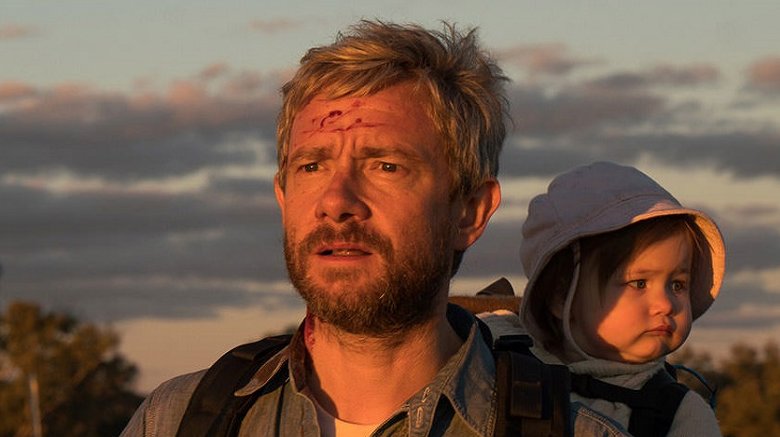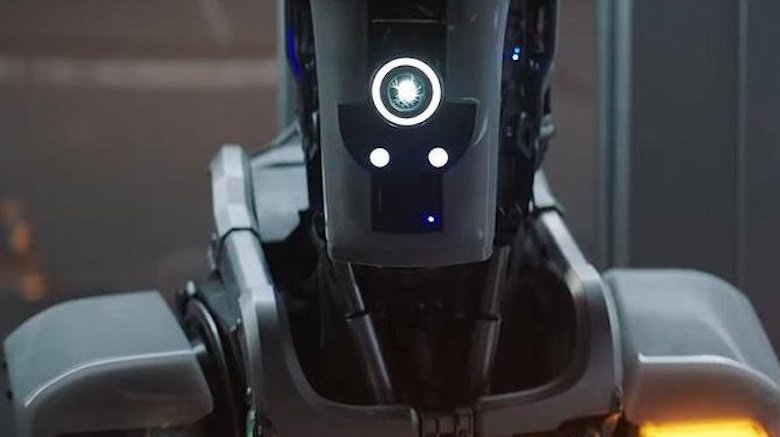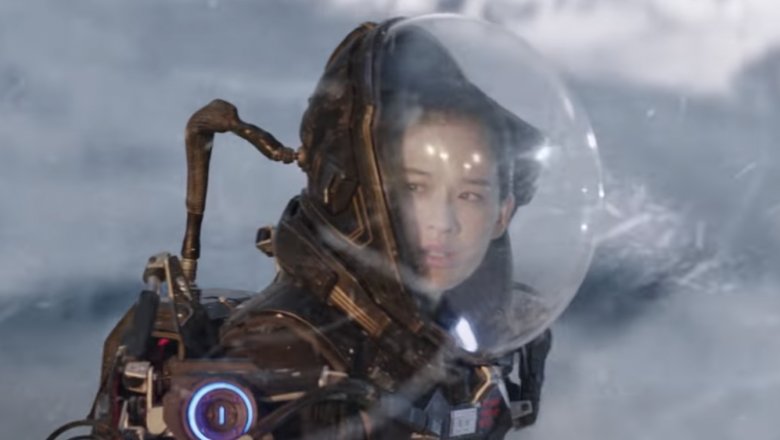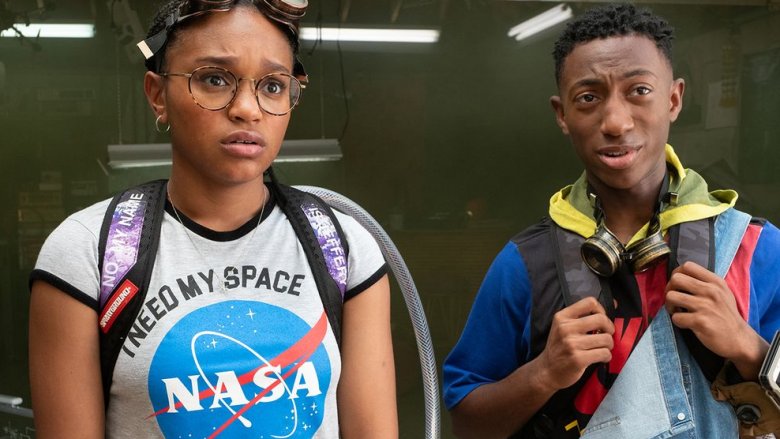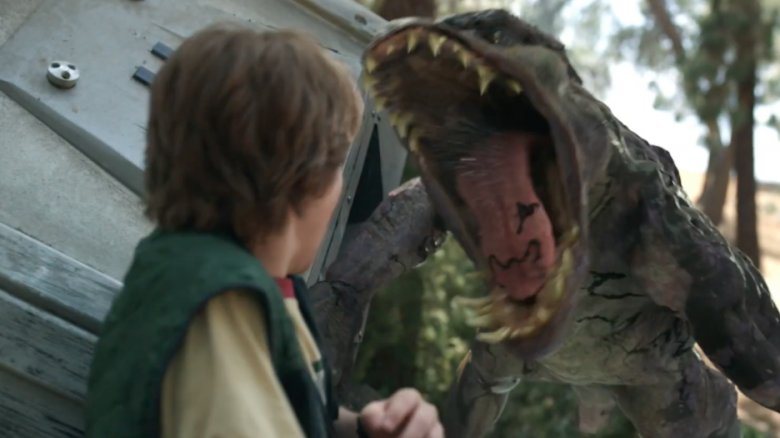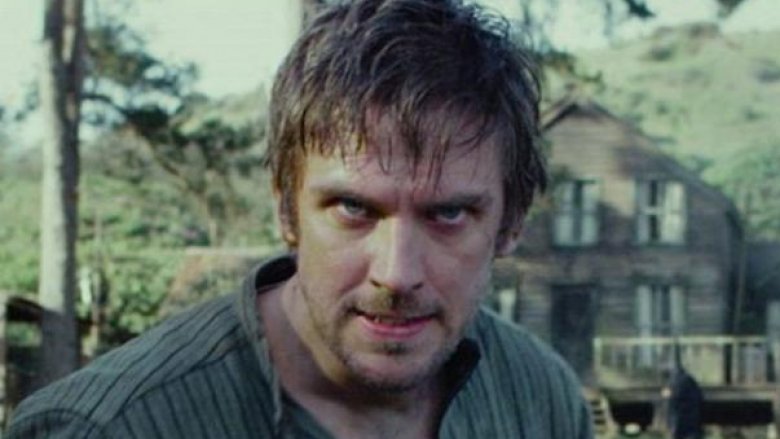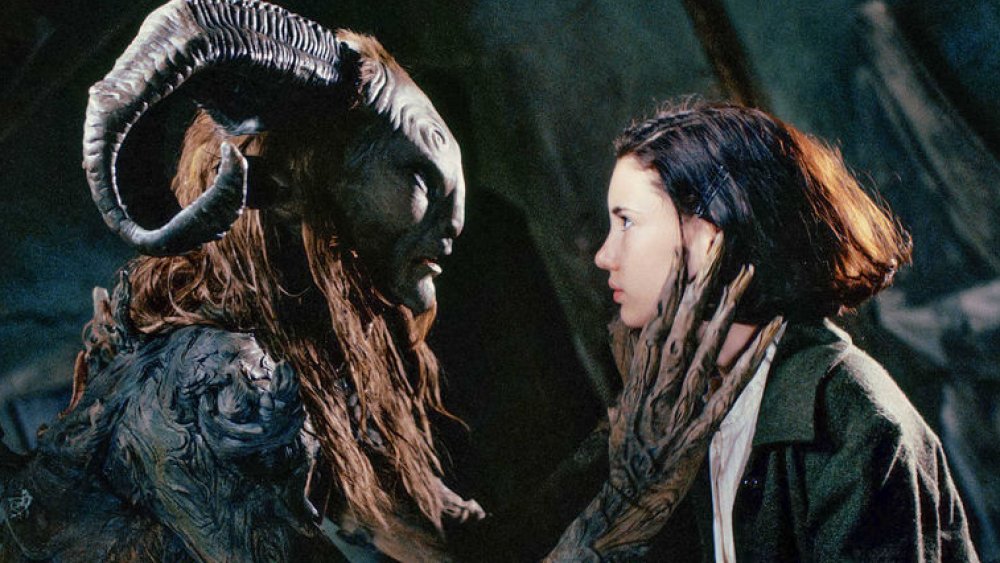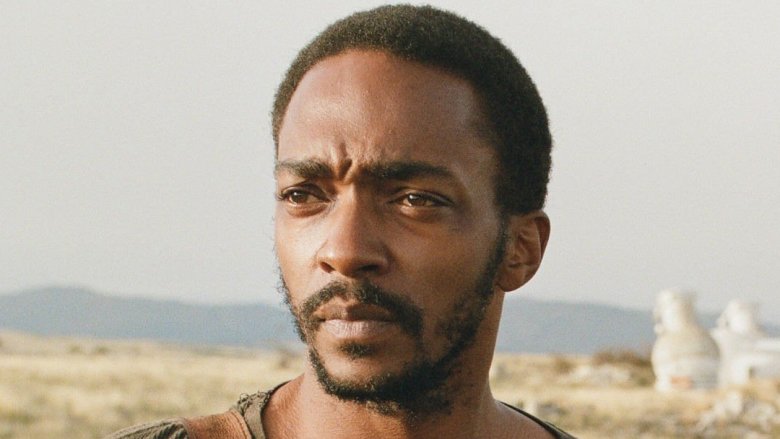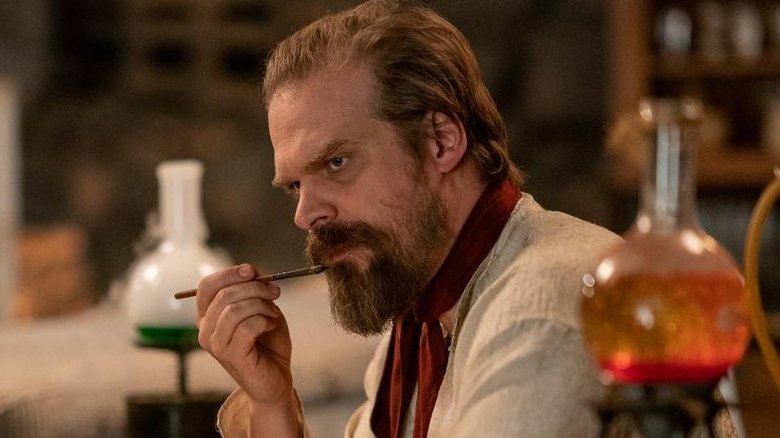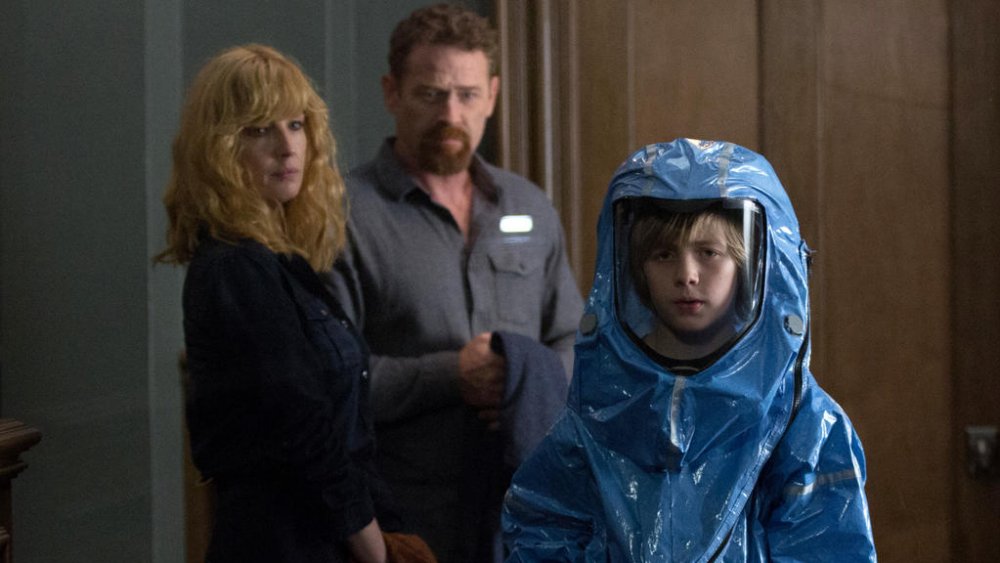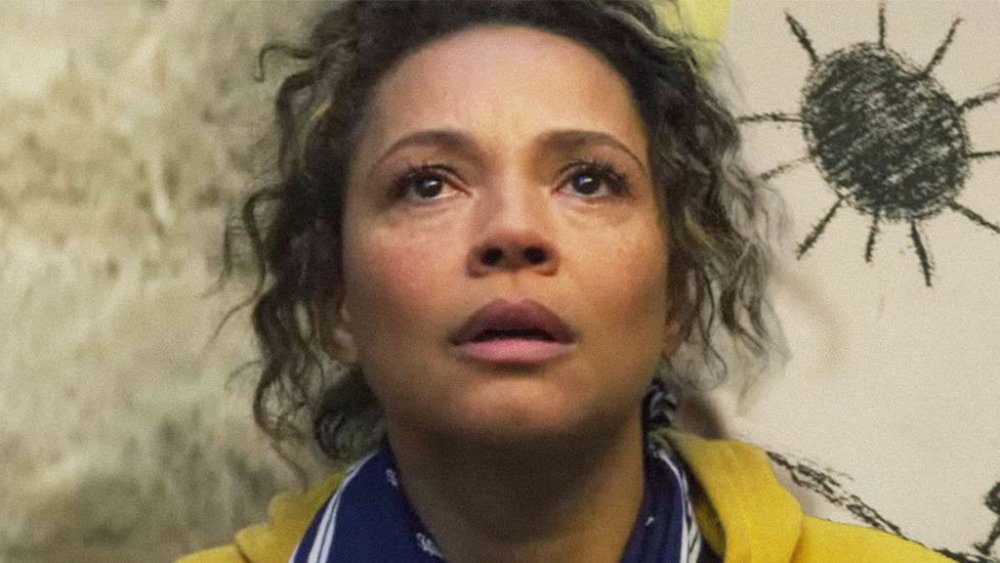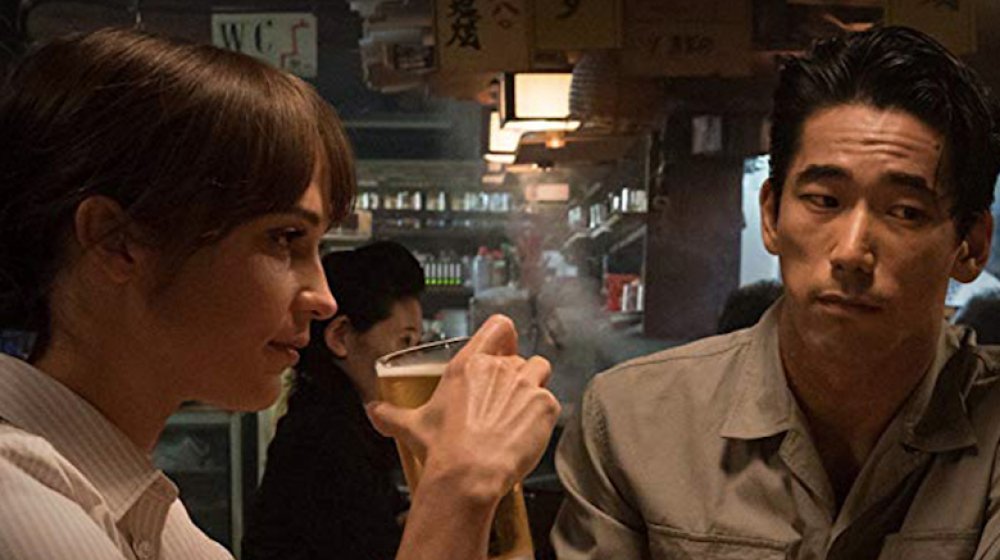Underappreciated Netflix Gems You Need To Watch
Netflix may seem like a pioneer and market leader in the realm of streaming entertainment, but what the service actually did was create a time machine. Every day, tens of millions of people around the world fire up their laptop or smart TV, hit up Netflix... and soon hours have disappeared after they've binge-watched 11 episodes of a cool new TV series or wiled away the hours while watching nothing much of anything at all. Netflix offers so many options — thousands of episodes, films, imported series, and original movies — that choosing the perfect thing to watch at right that moment can be too much to deal with.
Sure, you can just follow your "List" or check out the "what's new" or "what's hot" tabs, or you can dig a little deeper into the Netflix archives to find some truly outstanding, under-the-radar films made by familiar actors and innovative filmmakers. Here's a look at some of the best stuff to add to your queue for the next time you don't know what to watch on Netflix.
Polar (2019)
What if John Wick were an '80s movie, by which we mean more violent, more nihilistic, more violence-soaked and with more absolutely unnecessary nudity, all with a gleeful undercurrent of shock humor permeating the whole thing as well as an honest exploration of the mental effects of a violent life? That's Polar, the bonkers, messy story of one man's quest to relax and secure his pension. Mads Mikkelsen, the fascinating Danish actor best known for his starring role on the stylish TV version of Hannibal, stars as Duncan Vizla, a.k.a. the Black Kaiser, a highly effective assassin forced by his oddly corporate bosses to retire at age 50 and enjoy his golden years. Of course, his company plans to kill him off to avoid paying his payout. From a lovely cabin in Montana, Duncan has to fight off some violent attacks while also dealing with PTSD and forging a friendship with a neighbor (Vanessa Hudgens) with demons of her own.
Hold the Dark (2018)
It seems like every possible idea for a movie about werewolves that could be made has already been made — Jack Nicholson played an old, upper-middle-class one in Wolf and there are two Teen Wolf movies and a hit MTV series about adolescent basketball-playing ones. Kudos then to Jeremy Saulnier and Macon Blair, director and screenwriter of the terrifying, claustrophobic thriller Green Room, who team up again on Hold the Dark, a compelling take on the man-to-wolf mythos. Wolf researcher Russell (Jeffrey Wright) heads to a small town in Alaska to help the locals (led by Riley Keough) hunt and kill the wolves they think are behind the deaths of three kids. But this small town isn't quite what it seems, as some of the residents are werewolves; the werewolves may not even know about their own tendency to become spiritual, stylish, next-level killing machines. Or, you know, maybe it's a demon. If you're into werewolves — as well as creepy wolf masks and mystical hot springs — Hold the Dark should very much be your thing.
I Am the Pretty Thing That Lives in the House (2016)
There's an old adage that advises writers to "write what they know," and in I Am the Pretty Thing That Lives in the House, Iris Blum (Paula Prentiss) apparently did that. Now plagued by dementia, the former writer of horror novels retires to a spooky country house in America's ghost capital of Massachusetts, where the stuff she wrote about for years literally comes back to haunt her. Live-in nurse Lily (Ruth Wilson) also moves in, and she becomes the first responder for her employer, spotting ghoulish figures, growing splotches that may or may not be black mold, out of place objects — your usual haunted house frights. It's arguably creepier that Iris calls Lily by the name "Polly," the heroine of one of her novels who just might be based on a real, doomed individual... who also makes a ghostly appearance in the house which Lily should definitely leave before things get even worse in this deeply unsettling, understated horror movie written and directed by Osgood Perkins... son of Anthony Perkins, who starred in this film's spiritual (pardon the pun) predecessor, Psycho.
ARQ (2016)
Groundhog Day may seem like a comedy — what with a career-best performance by Bill Murray, annoying insurance salesman Ned Ryerson, and ironic usage of "I Got You, Babe" — but it's actually a horror movie. Seriously: A guy is such a nasty person that the universe spontaneously conspires to make him shape up by sticking him in a time loop from which he cannot escape. That's a living nightmare — déjà vu but psychologically devastating. ARQ takes Groundhog Day for what it is — sheer terror — and runs with it. Robbie Amell stars as an engineer responsible for a world-changing technology (a fabled perpetual motion machine), only to find himself dealing with a home invasion brought on by bad dudes who want this "ARQ" for their own means. But that's the problem with inventions that violate the laws of space and time: they mess up space and time. Our protagonist gets stuck in a time loop, forcing him to experience his horrible situation over and over again, tweaking it just so until he can find a way out.
Extinction (2018)
Alien invasion movies are among the most crowd-pleasing and satisfying of all science-fiction sub-genres. Sure, they're predictable — the humans always successful defend Earth from interplanetary evil — but after audiences feast on a sensory buffet of explosions and fights, they get a happy, hopeful ending. Plus, whenever Hollywood churns out a new one, there's usually a new twist or angle: Independence Day is very different from Arrival, which is very different from Extinction. Michael Peña, best known for his comedic work in the Ant-Man movies, stars in this deadly serious movie — emphasis on the deadly. He plays Peter, an engineer and philosopher very worried about mankind's diminishing sense of identity in a futuristic, dehumanized landscape, made all the worse when he starts having dreams of an alien killing spree. Guess what? The visions were accurate, and his concerns about humanity's future justified... just not in the way that he (or the audience) could ever have predicted.
iBoy (2017)
Life in an especially dingy and crime-filled part on London is rough for Tom (Bill Milner), a shy and awkward teenager who just wants to go about his business and maybe take things to the next level with his friend Lucy (Maisie Williams). When he goes over to her apartment to study together, he's greeted by thugs (their identities concealed by masks) who have just savagely attacked Lucy and her brother. Tom runs away and tries to call the police, only for the thugs to shoot him in the head and leave him for dead. The good news: He survived! The bad news: He wakes up two days after the attack with bits of his phone stuck inside in his severely damaged noggin. The other good news: Like some kind of Silicon Valley Spider-Man, the advanced computing technology in the phone merges with Tom's brain to give him superpowers, such as the ability to visualize digital transmissions and hear phone calls. Or maybe our boy (or iBoy, rather) is less like Spider-Man and more like RoboCop, because he uses his newfound skills to track down the bad guys who nearly killed Lucy.
Gerald's Game (2017)
Based on a Stephen King novel from the early '90s, Gerald's Game begins like those countless "erotic thrillers" that populated late-night cable TV in that era: Married couple Gerald (Bruce Greenwood) and Jessie (Carla Gugino) go away for a sexy weekend in a cabin in the woods. But nothing good pretty much ever happens to anyone in a Stephen King story or in a cabin in the woods in a horror movie. They engage in some increasingly troublesome bedtime play, which involves handcuffs, Viagra, and Gerald's dark fantasy. The games pretty much end when Gerald dies of a heart attack while Jessie remains cuffed to the bed. With very little hope of escape or rescue, Jessie's mind rears up to attack her, presenting numerous hallucinations that feel real... especially the horrible memories that are real. Very few movies take place in one room, and Gerald's Game more or less does, making the horror that much more intense and palpable, creating an intimacy and emotionally powerful connection with Jessie as the film's events unfold.
Wheelman (2017)
What if Baby Driver wasn't a soundtrack-driven action comedy, and was instead an unpredictable, intricately plotted suspense thriller about a getaway driver having his worst ever day of work? That's the logline for Wheelman, which also feels like the greatest Jason Statham movie Jason Statham never made. Frank Grillo (Zero Dark Thirty) portrays the unnamed, usually unflappable wheelman in a bank heist scheme, just out of prison and in debt to a Boston crime family. Everything that could go wrong does, but it's not all that funny — it's stressful enough riving a getaway car for a robbery, and it's even more nerve-wracking for the wheelman when he gets more or less carjacked by another band of mysterious criminals. Much of the action takes place inside the car and inside the head of the wheelman, speeding along from one high-pressure situation to another, but Wheelman also boasts one of the best "oh, it's that guy!" casts in recent memory. Among the always stellar character actors rounding the cast (and elevating the movie) are Garret Dillahunt (Winter's Bone, Deadwood) and Shea Wigham (True Detective, Fast & Furious).
Spectral (2016)
James Badge Dale (Eric Savin in Iron Man 3) plays Clyne, one of the smartest people in the world, a DARPA scientist employed by the U.S. military to develop weapons technology to use in the ongoing Moldovan War in Eastern Europe. He's summoned to the front lines to consult on some strange findings captured by one of his best gadgets, hyper-spectral goggles. It would seem some troops wearing the goggles spotted some ghostly, humanoid, opaque figures out in the wild... ones which tend to kill whatever they come in contact with immediately. Before the military can report to their higher-ups, they need Clyne to figure out just what it is, and so off he goes into the wilderness to stalk the beast, alongside a special ops team and a C.I.A. operative (Emily Mortimer). What they find is way worse and more complicated than they thought possible. A harrowing war movie with elements of District 9 and Predator thrown in, Spectral is a clever and intense movie, not unlike screenwriter George Nolfi's 2011 film, the underrated and inventive The Adjustment Bureau.
Crouching Tiger, Hidden Dragon: Sword of Destiny (2016)
Yes, there's a sequel (or at least a thematically similar follow-up) to 2000's Crouching Tiger, Hidden Dragon, arguably the greatest martial arts movie ever made (and certainly the most beautiful). And, like so many other revivals of classic properties (Mystery Science Theater 3000, Queer Eye), it's just hanging out on Netflix. Loosely based on the same "Crane-Iron" series of books by Wang Dulu as the original Crouching Tiger, Sword of Destiny builds on its predecessor's magical combination of folk tales, multi-faceted characters, and visually stunning landscapes and physically impossible acrobatic fight scenes. Michelle Yeoh returns as You Shu Lien, fresh out of exile and locked in an important battle with the odious West Lotus clan for control of the Green Destiny sword (which belonged to Li Mu Bai, her dearly departed love, played by Chow Yun-fat in Crouching Tiger). Assisting her in her fated quest: a scrappy young warrior named Snow Vase (Natasha Liu Bordizzo), the crafty thief Tiefang (Harry Shum, Jr., the best dancer in the Glee cast), and a bunch of eager fighters-for-hire. Directing Sword of Destiny is Woo-Ping Yuen, the martial arts choreographer on the first Crouching Tiger, and he certainly brings his prowess for creating gorgeous and soaring aerial combat sequences.
Snowpiercer (2013)
Stop us if you've heard this one: Captain America and the Ancient One walk into a steampunk train embattled in a class war 20 years after the end of the world. While that sounds like a weird joke — or a mess of a movie — it's actually Snowpiercer, one of the most original, thoughtful, and unpredictable science fiction movies in recent memory.
Apparently back in 2014, some climate-change-changing technology didn't work, triggering a new ice age and killing almost all life on Earth. The humans that remain board Snowpiercer, a gigantic perpetual motion machine-powered super train built by an inscrutable inventor named Wilford (Ed Harris) that never stops circling the entire planet. By 2031, the onboard society has split into the haves — those in the front, luxurious cars — and the have-nots forced to eat food cubes and live in subhuman conditions in the tail. A back-of-the-train band made up of Curtis (Chris Evans), Gillam (John Hurt), and Edgar (Jamie Bell) lead a revolt when the front, led by the spooky Minister Mason (Tilda Swinton), goes too far. It all gets even more chaotic and compellingly strange from there.
Cargo (2017)
There's always room for a new twist and new voices in even the most trope-laden, tried-and-true film genres. Take Cargo, which revives the zombie movie genre from its funk by adding new dimensions of — ironically enough — humanity. Directors Yolanda Ramke and Ben Howling based the film on their 2013 short of the same name. It follows a man named Andy (Martin Freeman), who, with his wife Kay and infant daughter, Susie, preserves himself up in a houseboat along a river deep in the interior of Australia some time after a zombie apocalypse has destroyed society and most life.
Andy wants to take the boat upriver to the safety of military protection; Susie wants to make a supply run. Eventually, Andy heads out on land with Rosie strapped to his back, fighting off the undead. His story then intersects with Thoomi (Simone Landers), a native Australian with a similar but totally opposite situation: She's trying to protect her zombie-virus-infected father from the humans out to kill all the zombies. Ultimately, Cargo is a film about the will to not just survive, but to protect loved ones... whatever the cost.
I Am Mother (2019)
It's a very particular and engrossing science-fiction subset: movies about humans struggling to keep their sanity and humanity as they find themselves essentially alone in cold, unfeeling environments — movies like Moon, Alien, Logan's Run, and now I Am Mother, the feature debut by writer-director Grant Sputore. Rather than space or a spaceship, the lonely, desolate environment is Earth — an apocalyptic, extinction-level event has wiped out all of humanity. Fortunately, a repopulation contingency plan springs into action: a robot named Mother activates in a secure lab facility and raises one of 63,000 human embryos pre-frozen by scientists should life ever cease to exist. Mother (voiced by Rose Byrne) then raises her human daughter (helpfully named Daughter) through a pleasant childhood... until things get prickly during the teen years. Daughter (Clara Ruggard) discovers a living mouse and wonders if there's more life beyond her four walls. But then she finds out there really is, when an adult human woman (Hilary Swank) comes knocking at the facility door. I Am Mother is ultimately a thrilling, chilling, and even oddly touching allegory about parenthood and letting go (but with lab babies and robots).
The Wandering Earth (2019)
The Wandering Earth is one of the highest-grossing movies of the decade... but most North American movie fans probably have no idea it even exists. It enjoyed an extremely small release in the U.S., but earned nearly $700 million at China's box office — it's one of that country's first Hollywood-style, big-budget, blockbuster science-fiction epics. Based on a short story by science fiction author Cixin Liu and directed by Frant Gwo, the film boasts a thrilling story with familiar character types, all to serve a novel and compelling premise. Scientists discover that the sun is evolving into a red giant, meaning it's expanding at a rate that will devour Earth in 100 years and the entire solar system within 300 years. The globe's governments and scientists work together and come up with a creative solution: 10,000 gigantic jet engines are installed around the world, propelling the planet out of its orbit to begin a very long journey to a new permanent resting spot more than four lightyears away. Things go wrong relatively early when spaceship Earth gets caught in Jupiter's orbit, pulling it to eventual destruction, if not for some heroes' efforts to get the jets working again. Comparable to Armageddon, The Core, and Interstellar, The Wandering Earth is a fun and accessible sci-fi lark.
See You Yesterday (2019)
Filmmakers can use the limitless tools and imagination of science fiction to say something about the world, and Stefon Bristol explores some powerful themes with See You Yesterday, his feature-length debut based on his 2017 short film of the same name. Bristol and his talented young cast combine sci-fi tropes with brutal social commentary — this time travel thriller is about the future and the past but really about the present. C.J. (Eden Duncan-Smith) is a precocious and preternaturally gifted young scientist who, with her best friend and collaborator Sebastian (Dante Crichlow), has constructed a rudimentary but functional time machine.
They just want to go back in time by a day to look around and then come back, so as not to "butterfly effect" the past and rewrite history. But See You Yesterday is set in the predominantly African-American Brooklyn neighborhood of Flatbush, and C.J's brother Calvin (Astro) gets shot by police, who mistake his phone for a gun. C.J. has to use her device to go back and attempt to save her brother's life... if not for the time loops and complications she both causes and encounters. See You Yesterday is a heartbreaking, thoughtful movie, one that's constantly in flux and laced with great sci-fi references as well as the Jamaican influence that permeates Flatbush culture.
Rim of the World (2019)
If the Duffer Brothers merely allude to their Spielbergian influences and aims in Stranger Things, then Rim of the World director McG (who also helmed Charlie's Angels and Terminator Salvation) unabashedly and cheerfully made an '80s-style kid adventure movie. Rim of the World mixes elements of E.T.: The Extra-Terrestrial, The Goonies, and Red Dawn to create a similarly fun sci-fi action movie where teens save the day.
The simple, irresistible premise: four kids arrive at summer camp... just in time for an invasion of the planet by wicked aliens. With the well-populated "Rim of the World" camp soon abandoned, it's up to this ragtag group of teens who don't quite fit in elsewhere to come together and thwart what amounts to the end of the world, all without adults, computers, or much of anything (but they do have bikes — '80s movie kids always had bikes). Heaven of Horror calls this lightweight diversion "an absolute treat for fans of sci-fi, adventure, action, and monster movies."
Apostle (2018)
Why are period horror films so much scarier than ones set in the modern day? Is it because the relative ignorance and brutality of the past adds an extra element of terror? Or are images of Victorian-era Londoners in bleak clothes living bleak lives inherently unsettling? Probably that, although blood-hungry monsters, freaky islands, and blood cults are scary too. Fortunately, Apostle possesses all those things.
Set in 1905, Apostle concerns a man named Thomas (Dan Stevens), who leaves London for an island paradise off the coast of Wales. It's run by a cult, and Thomas must retrieve his sister, taken to the island by the group and held for ransom. He poses as a new adherent to gain favor with the cult members and their leader, Prophet Malcolm (a charming and creepy Michael Sheen), aiming to kidnap his sister back. Things get awfully sticky for Thomas when he realizes that the cult's teachings aren't exactly wrong. Those jars of blood everyone carries around to collect their blood sacrifice to the island? The island needs that blood. Imagine if Little Shop of Horrors mashed up with The Wicker Man, only ten times as freaky as both — that movie is Apostle.
Pan's Labyrinth (2006)
From the mind and lens of Guillermo del Toro, the filmmaker who gave the world clever and often horrific sci-fi mind-benders like Hellboy, Crimson Peak, and the Oscar-winning The Shape of Water, Pan's Labyrinth presents a trippy, fantastical world full of magically weird places and unbelievable creatures. Yes, it's a fairy tale, but this beautiful and original source of nightmare fuel is decidedly not a movie for children. Set in 1944 Spain after the country's Civil War, a child named Ofelia (Ivana Baquero) needs and desires escape from her reality of a fascist stepfather and a pregnant mother who's fallen ill.
A fairy-like insect guides Ofelia into a stone labyrinth, where a faun (that's a half-man, half-goat) tells her that she's actually a reborn princess of legend, and must complete a series of challenges to claim her kingdom. It's your typical (meaning bizarre) dark fantasy type stuff — getting a key from a toad's belly, finding a dagger among the personal effects of a child-eating "Pale Man," etc. Doug Jones, a performer who specializes in portraying not-quite-human characters (he was the sensitive sea monster in The Shape of Water), turns in two of the best performances of his career in the unforgettable and haunting Pan's Labyrinth, playing both the mysterious faun and the terrifying Pale Man.
Io (2019)
According to the thoughtful sci-fi movie Io, humanity is doomed to never change its ways, and in the not-too-distant future, Earth becomes uninhabitable. Fortunately, scientists have found a new home for mankind on Io, one of Jupiter's many moons. A scientist named Sam (Margaret Qualley) is among the handful of humans who haven't made the migration to Io yet, staying behind to test the water and air for signs of decreasing toxicity, as well as to raise bees that she hopes could someday pollinate and help save the planet's vegetation. Time is running out, and certain catastrophic events lead Sam to head with another survivor, Micah (Anthony Mackie) to a shuttle that will take them into space.
Io is full of philosophical and mental tension as these two bear witness to what could be Earth's final, extinctive whimper, but also a newfound hope for the future. Leigh Monson of Birth.Movies.Death. says, "If you're looking for science fiction that makes manifest the anxieties of a dying world, our dying world, then Io is a good place to start."
Frankenstein's Monster's Monster, Frankenstein (2019)
After bringing so much attention and accolades to Netflix via his unforgettable performance as Sheriff Hopper on Stranger Things, it's no surprise if David Harbour has free reign to do whatever he wants at the streaming giant. What he wants to do is a meta, sci-fi and horror-laced mockumentary about the actor's life, a collaboration with Kroll's Show and Arrested Development writer John Levenstein. The result is a short special that's a bit hard to define.
Frankenstein's Monster's Monster, Frankenstein is based around a mid-1970s made-for-TV production of the two-man theatrical version of Frankenstein. The twist is that Harbour plays his own "father," also an actor named David Harbour, as the two generations play both Dr. Frankenstein and his monstrous creation at the same time. To round out this tribute from the younger Harbour to the fictional older Harbour are clips of the actor from other vintage fictitious productions like The Crying Detective and The Actor's Trunk. The whole thing winds up both a love letter to the craft of acting and an affectionate send-up of the entire notion of playing pretend for a living.
Eli (2019)
Remember the "Bubble Boy" episode of Seinfeld, or the 2001 Jake Gyllenhaal movie Bubble Boy? Eli similarly imagines the life of a kid (Charlie Shotwell) who, due to severe allergies, must wear a protective suit at at all times. Unlike its predecessors, Eli doesn't play the situation for laughs. Eli's parents take him to a remote, hermetically sealed medical facility operated by the brilliant Dr. Horn (Lili Taylor). It's a converted old house, and also it's haunted, which is just one of the problems Eli faces, apart from how his immunity-building treatments are horrifically painful.
Multiple spooky encounters with ghosts leave Eli to wonder if he should heed their warnings about Dr. Horn. With the help of a visitor named Haley (Sadie Sink from Stranger Things), Eli uncovers the truth about Dr. Horn... and what happened to the people who became ghosts. "You've seen haunted houses and medical horror movies before," said John-Michael Bond of The Daily Dot, "but Eli plays with those conventions to develop fresh scares along with familiar tropes.
Rattlesnake (2019)
It's an old conversation starter: would you become a millionaire if it meant that somewhere, someone, suddenly died? Writer-director Zak Hilditch's mystery-horror movie Rattlesnake takes that question and makes it even more uncomfortable, substituting for fabulous wealth with the life of a child... which still comes at the cost of a stranger's violent death. It's like a really dark, feature-length episode of The Twilight Zone.
While driving through the desolate Texas desert, Katrina (Carmen Ejogo) blows out a tire. Her young daughter (Apollonia Pratt) roams off and, in a situation that seems absolutely hopeless due to the remote location, suffers a rattlesnake bite. As it happens, a mysterious woman (Debrianna Mansini) appears and magically heals the girl. All Katrina has to do in return is murder somebody — anybody — within seven hours, or her daughter will die.
The horror then plays out as a psychological and moral drama as Katrina tries to figure out what to do, and how to justify her actions. Brandon Zachary of CBR says that Rattlesnake "is a great example of how a film that could be dismissed as pulpy horror can be constructed with a genuine sense of craft, resulting in something outright impressive."
Earthquake Bird (2019)
Sometimes the scariest parts of a scary movie don't come from monsters or gore, but from menace and dread. That's what propels the precisely paced Earthquake Bird, based on the novel of the same name by Susanna Jones. Alicia Vikander of Ex Machina returns to the kind of moody, unsettling cinema that made her famous, portraying Lucy, a Swedish expatriate who has settled into a life in 1989 Tokyo that is repetitive, bland, and mundane by design, as she's looking to flee from and forget past traumas. She works as a translator, living alone while maintaining some low-key friendships and playing cello in a string quartet.
One day, Lucy meets Teiji (Naoki Kobayashi), a noodle shop worker and aspiring photographer. She enchants him and lets him make portraits of her, but just when it seems like her icy veneer is starting to thaw, Lucy's life is interrupted by a brash American named Lily (Riley Keough), who goes missing and is presumed dead. Is the mysterious Lucy responsible, either via conscious act or her status as a tragedy magnet? Or is she merely an unreliable narrator? Gabriel Silver of the Detroit Metro Times calls Earthquake Bird "an enjoyable neo-noir film, with enough twists and turns to leave you thinking long after the ending."
